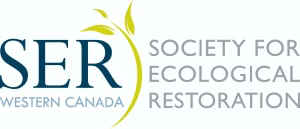
- This event has passed.
Practical Statistical Methods for Contaminated Sites
Have you ever been faced with comparing environmental data to quality criteria/standards or background/reference sites; or evaluating trends in monitoring data; or determining when a remediation target has been met; or estimating an exposure concentration for a risk assessment?
This workshop has been tailored to answer these questions, and more! The “Practical Statistics for Contaminated Sites” workshop covers statistical principles and methods focused on BC Contaminated Site Regulation (CSR) and associated technical guidance. Hands-on training will be provided using the new version of ProUCL (version 5) to evaluate contaminated site data.
Topics covered by the workshop include:
1. Describing Data Characteristics
2. Statistical Guidance for Contaminated Site Investigations in BC
3. Software
4. Statistical intervals
5. How Hypothesis Tests Work
6. Testing Group Differences
7. Testing trends
For this statistical workshop, we will bring in the well know expert, Dr. Dennis Helsel. Dr. Dennis Helsel (PhD, Environmental Science and Engineering, Virginia Tech) has 36 years experience applying statistics to practical issues in environmental sciences. He is the owner and lead scientist of Practical Stats, an environmental statistics training and consulting firm. He has authored two textbooks, “Statistical Methods in Water Resources” (2002, with Robert Hirsch), and “Statistical Methods for Censored Environmental Data using Minitab and R” (2012, previously titled Nondetects And Data Analysis), as well chapters in two handbooks and over 50 journal articles. Dr. Helsel was the 2003 recipient of the Distinguished Achievement Award from the American Statistical Association’s section on Statistics and the Environment, and of the Dept. of Interior’s Distinguished Service Award in 2007. He has conducted training classes on environmental statistics in China, Germany, the Netherlands, Finland,
For Agenda and Registration details, visit www.GeoEnviroLogic.ca
